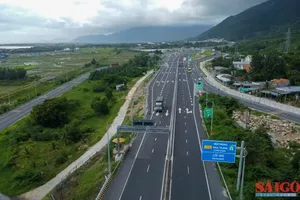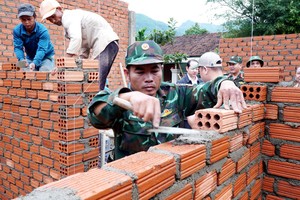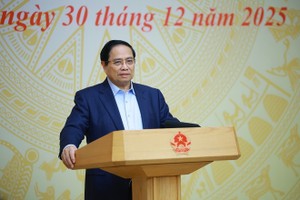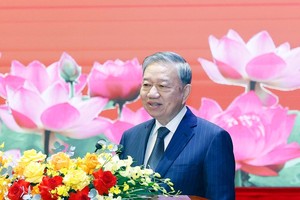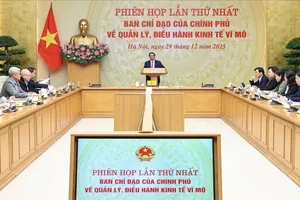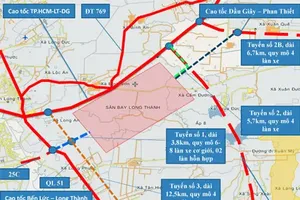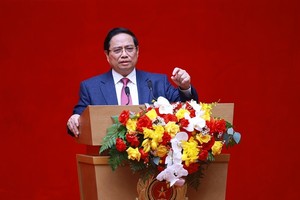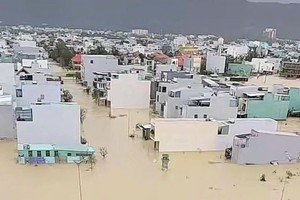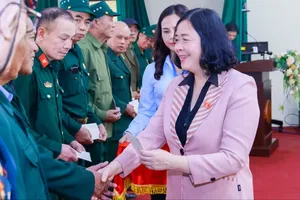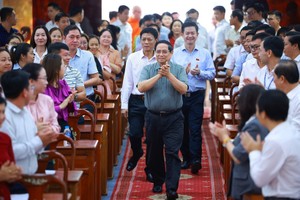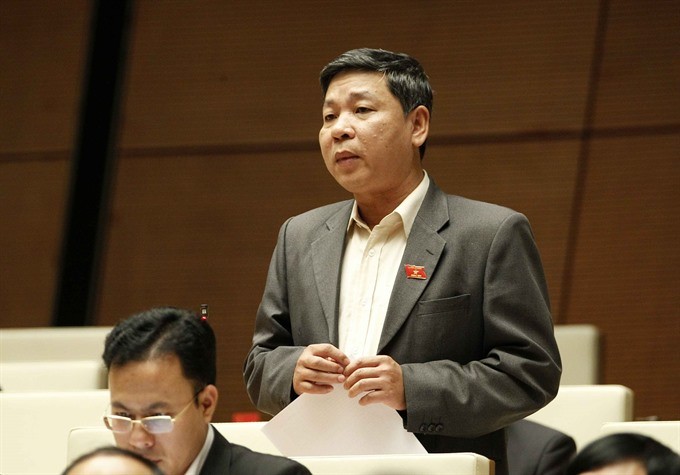
If approved, the new law will replace the 2005 Anti-Corruption Law, said to contain shortcomings that hinder Party and Government efforts to stamp out rampant and sophisticated corruption.
The point sparking most controversy among deputies is an extension of the group of subjects regulated by the draft law.
Some deputies agreed with the draft law that it should also cover people in the non-State sector, such as those in public companies, credit institutions, investment funds, social organisations - including charity organisations that do not use the State budget. This is an expansion from the current law which only regulates public servants.
Deputy Trinh Ngoc Phuong from Tay Ninh Province said the wider version was necessary because corruption also happened in the non-State sector. Phuong said it was not uncommon for people in the non-State sector to collude with public servants to conduct corrupt acts.
Deputy Nguyen Quang Dung of Quang Nam Province agreed, citing examples of anti-corruption laws in other countries. The expansion also made the anti-corruption law conform with the penal code, which he said already dealt with such cases.
These opinions, however, met with objections from other deputies who said it was necessary to clearly identify what “corruption” meant.
Deputy Luu Binh Nhuong from Ben Tre Province noted that people in the non-State sector were likely to conduct bribery, not corruption.
Deputy Duong Trung Quoc of Dong Nai Province said corruption involved the abuse of public power which caused losses of State money for private benefit, indicating the act mostly involved those in the State sector.
Deputy Pham Van Hoa from Dong Thap Province said that if non-State entities, such as charities, were regulated by the law, they may be asked to disclose their assets, which could discourage people in doing charity.
The requirement about asset disclosure of public servants also received attention from many deputies.
The draft law provides two options about the group of public servants required to disclose their assets. The first option covers a wide range of public servants, asking those who enjoy an allowance coefficient of 0.2 under the State salary scheme to declare their assets. The second option requires those having the coefficient of at least 0.7 and 0.9 to do so. The coefficient is applied to those in management positions. The higher the coefficient, the higher position a person holds.
Some deputies were in favour of option two, saying it was better to focus on people holding important positions in central governments and local authorities.
Deputy Do Van Binh of Hải Phòng cited the more than 1.1 million disclosure forms made in 2017, of which verification was performed on only 77 and violations were only detected in five. He said too many people were required to do the process, making the measure largely ineffective.
However, some argued that corruption did not depend on the allowance coefficient but rather the type of job. For example, a low-ranking official in corruption-prone sectors like customs, tax, or local police was more likely to be corrupted than a high-level official in the National Assembly or a People’s Council.
They therefore suggested having different requirements for different sectors and types of jobs, rather than the two options in the draft law.
Deputy Tran Tat The from Ha Nam Province mentioned another aspect of the process. Currently, only the agency that manages a public servant can access his/her asset disclosure form. It was very likely that people in the same agency would cover up for each other, he said, adding that assigning a third body to monitor public servants’ assets would be a better solution.
Some deputies asked for harsher measures to punish those found dishonest in declaring their assets, besides administrative punishments already imposed.
Others said corruption monitoring agencies, such as inspectorates at different levels and State audits that fail to follow proper procedures, led to failure to detect corruption, adding that they must be made accountable for their wrongdoings.
Chief of the Government Inspectorate Le Minh Khai, representative of the law drafting body, said the agency would study opinions of deputies and discussed them in details in the next session of the 14th National Assembly.
The draft law is also scheduled to be put to the vote at the next session.
